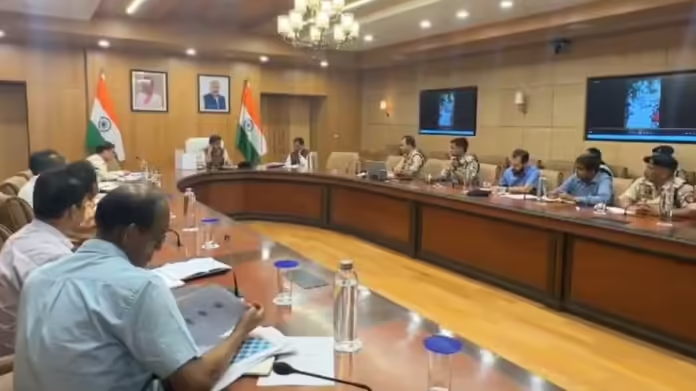Assam Chief Minister Himanta Biswa Sarma has emphasized the urgent need for inter-state coordination following severe flash floods that hit Guwahati on August 5. The unexpected flooding caused major disruptions across the city. Roads became impassable, and significant areas experienced extensive waterlogging.
In his response, Sarma highlighted the need for a comprehensive strategy to address these recurring issues. He pointed out that floods in Guwahati often result from factors extending beyond the city’s boundaries. For a solution to be effective, cooperation between neighboring states, particularly Meghalaya, is essential.
The Chief Minister stressed that the flash floods had exposed the city’s vulnerability to extreme weather events. He acknowledged the immediate impact on daily life, noting that the floods disrupted transportation and daily routines for thousands of residents. The waterlogged streets have made it difficult for emergency services to reach those in need.
Sarma also called for a detailed review of the existing flood management systems. He noted that current measures need an upgrade to handle such extreme weather conditions effectively. Enhanced coordination with Meghalaya, where heavy rains often contribute to rising water levels in Guwahati, is crucial.
The Chief Minister’s comments come after a significant rainfall caused rivers and drains to overflow. The floods have highlighted the interconnected nature of regional weather patterns and their effects on cities like Guwahati. Sarma believes that tackling these issues requires a collaborative approach involving multiple states.
Officials have already begun assessing the damage caused by the floods. Relief efforts are underway to assist those affected, with teams working to clear the roads and provide support to displaced families. Sarma assured the public that the government is committed to restoring normalcy as quickly as possible.
He also emphasized the importance of preventive measures to mitigate future flooding. Investment in infrastructure improvements, such as better drainage systems and flood barriers, is part of the broader strategy he envisions. Sarma urged for long-term solutions that address the root causes of flooding rather than just responding to its immediate effects.
The floods have sparked discussions about the broader impacts of climate change and urbanization. Experts suggest that increased rainfall and altered weather patterns contribute to the growing frequency of such extreme events. Sarma acknowledged these factors and called for greater research and investment in climate resilience strategies.
In the meantime, the government is focusing on providing immediate relief to affected areas. Emergency services are working to restore essential services and assist those in need. Sarma has promised that the government will continue to monitor the situation closely and take all necessary actions to protect residents from future floods.
The Chief Minister’s call for inter-state coordination reflects a growing recognition of the need for regional cooperation in addressing environmental and climatic challenges. By working together, states can develop more effective strategies to manage and mitigate the impacts of extreme weather events.
Overall, Sarma’s response to the flash floods underscores the importance of a multi-faceted approach to disaster management. As Guwahati recovers from the recent floods, the focus will be on implementing both immediate relief measures and long-term solutions to enhance the city’s resilience against future flooding.



